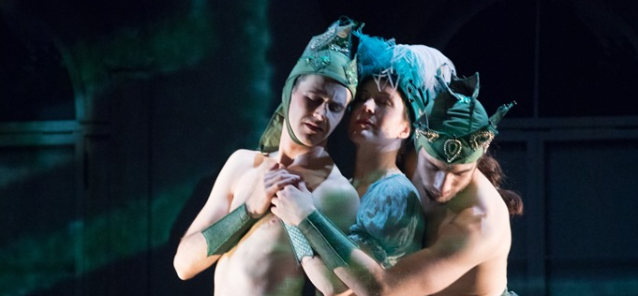The history of opera is marked with milestones; innovations in form or technique that were novelties when they appeared, but have been proven by time to be revolutionary for the development of art. One such work is, without a doubt, Armide by Jean-Baptiste Lully (1632-1687), whose revolutionary quality was the introduction of accompanied recitative (recitativo accompagnato) as a means of artistic expression. The ultimate testament to how quickly this form of scenic action, often incorporated as an element of narration, found favour with composers is the legacy of maestros such as Jean-Philippe Rameau, Christoph Willibald Gluck, Georg Friedrich Händel or Johann Sebastian Bach. 15 February 1686 thus marked the beginning of something we see as an integral part of the art of opera; something that was, however, considered more than a novum in Maestro Lully’s time. Not only that, but the subject matter itself found so much favour with the great figures of opera that on 23 September 1777, Gluck – who did not hide his admiration for Lully – presented his opera entitled Armide, also consisting of five acts, in Paris.
However, the success of Jean-Baptiste Lully’s Armide – the composer’s last work created together with librettist Philippe Quinault – did not come as soon as the work premièred on 15 February 1686 at the Théâtre du Palais-Royal in the presence of Louis of France, the Grand Dauphin. The scenographer was Jean Bérain the Elder and the conductor was Pascal Collasse, a disciple of Lully (it was him who completed Achille et Polyxène, which Lully died before finishing). Some sources even maintain that Armide was initially a failure; moreover, it was never shown at the Palace of Versailles, even though its subject was inspired by the king himself (Lully was his court composer; the most important figure in the musical world – the superintendent). Historians believe it was a result of scandals caused by Lully himself; his misconduct (an alleged affair with one of the king’s pages) and resulting fall into disfavour. Homosexuality was punishable by death at the time; most likely, only the respect of Louis XIV (who never saw the opera!) saved the composer’s life. The opera, however, introduced Lully’s music to Italian audiences (Rome 1690). In Paris, Armide returned to the scene in 1703 (and was shown regularly until 1766); it was also performed in Marseilles and Lyon.
The opera is the origin of a famous aria: the monologue of the eponymous heroine, often cited as an unparalleled example of the composer’s artistry; the aesthetic absolute. Sadly, for more than 150 years, Armide in its full length was absent from opera programmes. Despite the occasional performances of fragments (such as the aforementioned monologue of Armide, presented on 8 April 1832 thanks to musicologist François-Joseph Fétis) and exceptions made on the 200th anniversary of the composer’s death (Brussels Conservatory, 1887), Armide was not shown again in its full length until the 1905 performance at the Schola Cantorum de Paris. With time, it reconquered the hearts of conductors and music lovers alike, appearing on the scene in Monte Carlo, Florence, Geneva and Birmingham. A quarter of a century ago, Philippe Herreweghe conducted it at the Antwerp Opera and subsequently at the Theâtre des Champs-Elysées in Paris.
Armide is considered one of the first operas (or even the very first) with such a prominent focus on the psychological aspect of the characters and an allegorical quality, with none of the light, frivolously aethereal nature of the Maestro’s previous works. It was very emotionally received by the author’s contemporaries; audience members’ reports are often quoted. In his lexicon A Thousand and One Operas, Piotr Kamiński (Warszawa: Polskie Wydawnictwo Muzyczne SA, 2008) quotes a statement by Lully’s contemporary Le Cerf de La Viéville: About twenty times, I saw everyone gripped by fear, breathless, unable to even move, their entire soul in their ears, and later exhaling with a murmur of joy and admiration.
Today, Lully is often mentioned in academic disputes regarding the superiority of Italian opera over French opera. Advocates of the former comment on the composer’s Florentine birth (he left Italy at the age of 14) by saying that the best French opera has to offer originated in Italy. The Warsaw performance has already earned a place in the history of opera, as each appearance of Armide on the scene is noted by critics all over the world. The performance, directed by the outstanding Maestra of Baroque opera – Deda Cristina Colonna – is coproduced with Innsbrucker Festwochen der Alten Musik, Music Festival Potsdam Sanssouci and Centre de Musique Baroque de Versailles.










